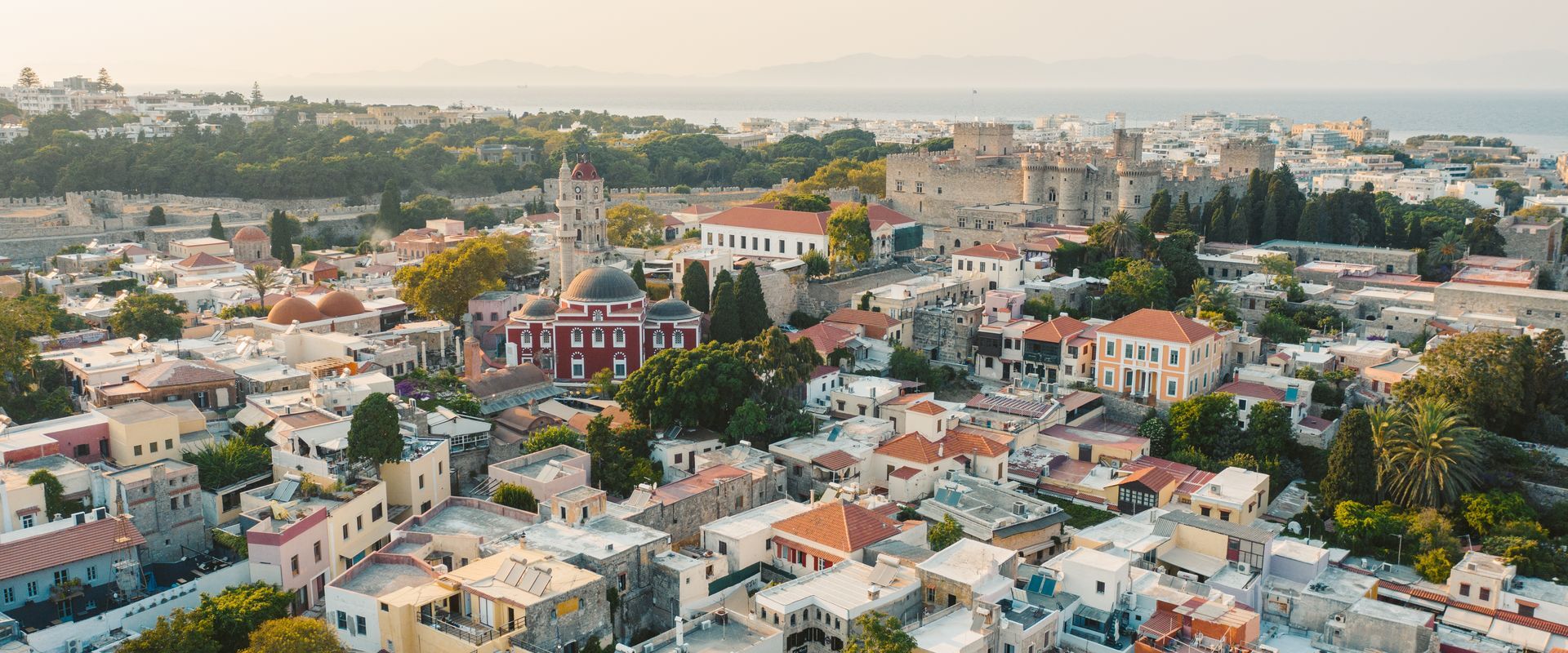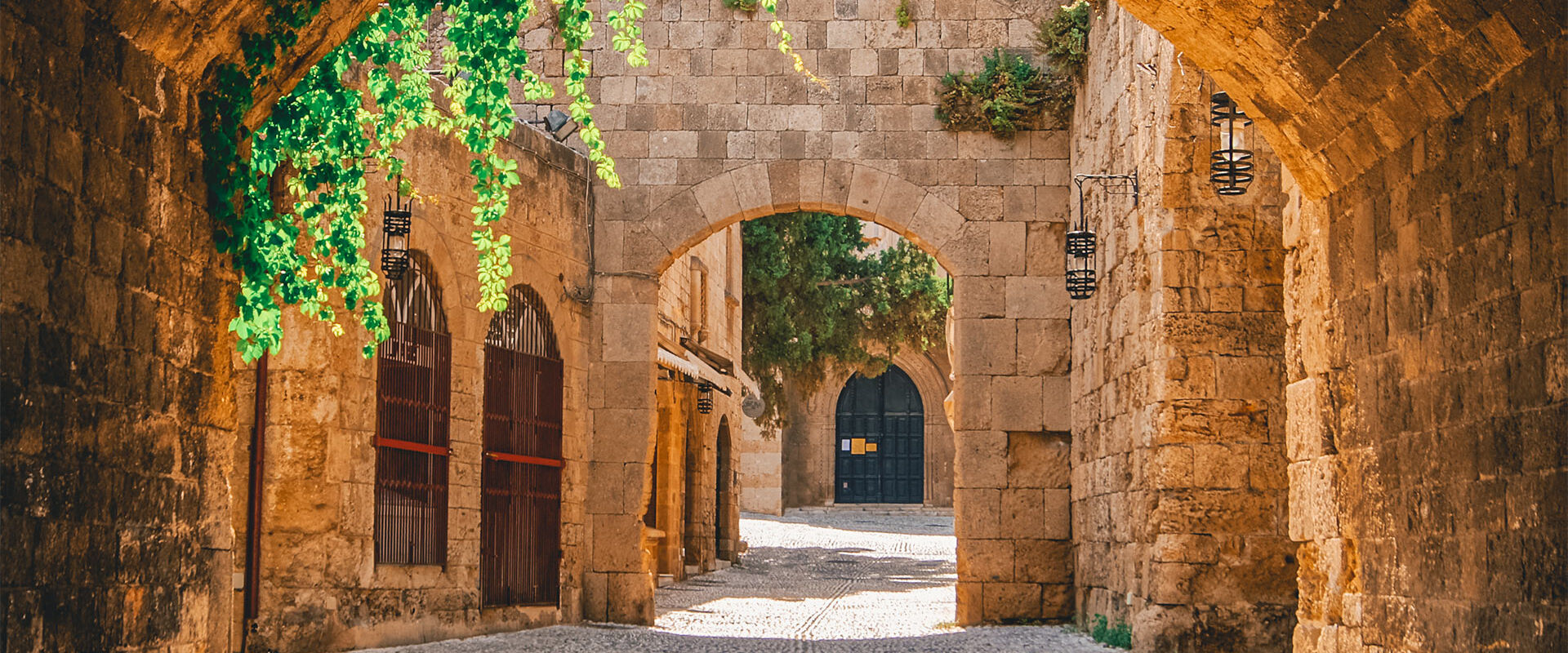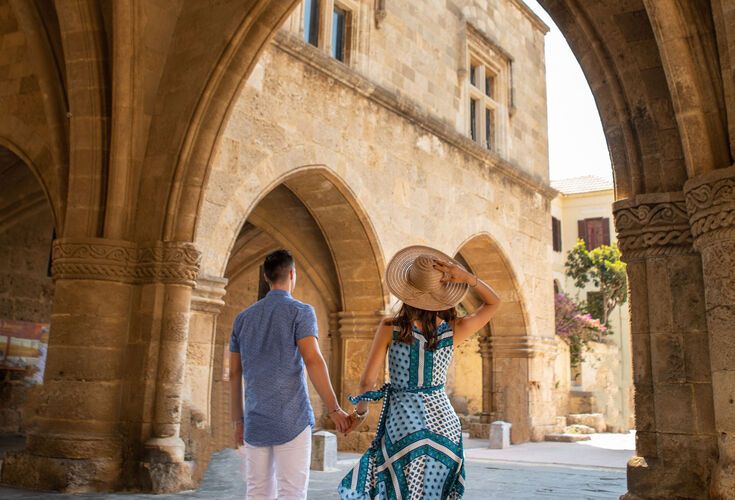I first visited Rhodes as a young girl in 1965. Before arriving, I had read Lawrence Durrell’s companion to the landscape of Rhodes, “Reflections on a Marine Venus”. My favorite passage from that book – “In Rhodes the days drop as softly as fruit from trees. Some belong to the dazzling ages of Cleobulus and the tyrants, some to the gloomy Tiberius, some to the Crusaders.” – prepared me for what I would encounter.
Having lived in the American South all of my life in a homogeneous, Anglo-Saxon environment, I was awestruck by the multicultural character of Rhodes. Rarely does one have the chance to stroll into twenty-four centuries of history and countless centuries before this, dating back to the first human presence on the island. Rarely is one so drawn into the soul of a city and island, crystallized by the spirit of the many civilizations that have left their imprint throughout history – from the ancient Greeks and Romans, followed by the Byzantines to the Knights of St. John, the Ottomans and the Italians.
I spent days in the Medieval Town, one of the best preserved of its type in Europe, where different cultures and civilizations have lived in harmony throughout the ages. I believe that the everyday co-existence of many nationalities in Rhodes is a living tribute to human solidarity.
The images that met my eye first time round all those years ago – the Byzantine, Medieval-Gothic and Ottoman buildings, the churches, the mosques, the synagogue, the cobblestone streets that lead to picturesque squares with fountains and the market streets lined with traditional shops blending yesterday with today – never cease to fascinate me.
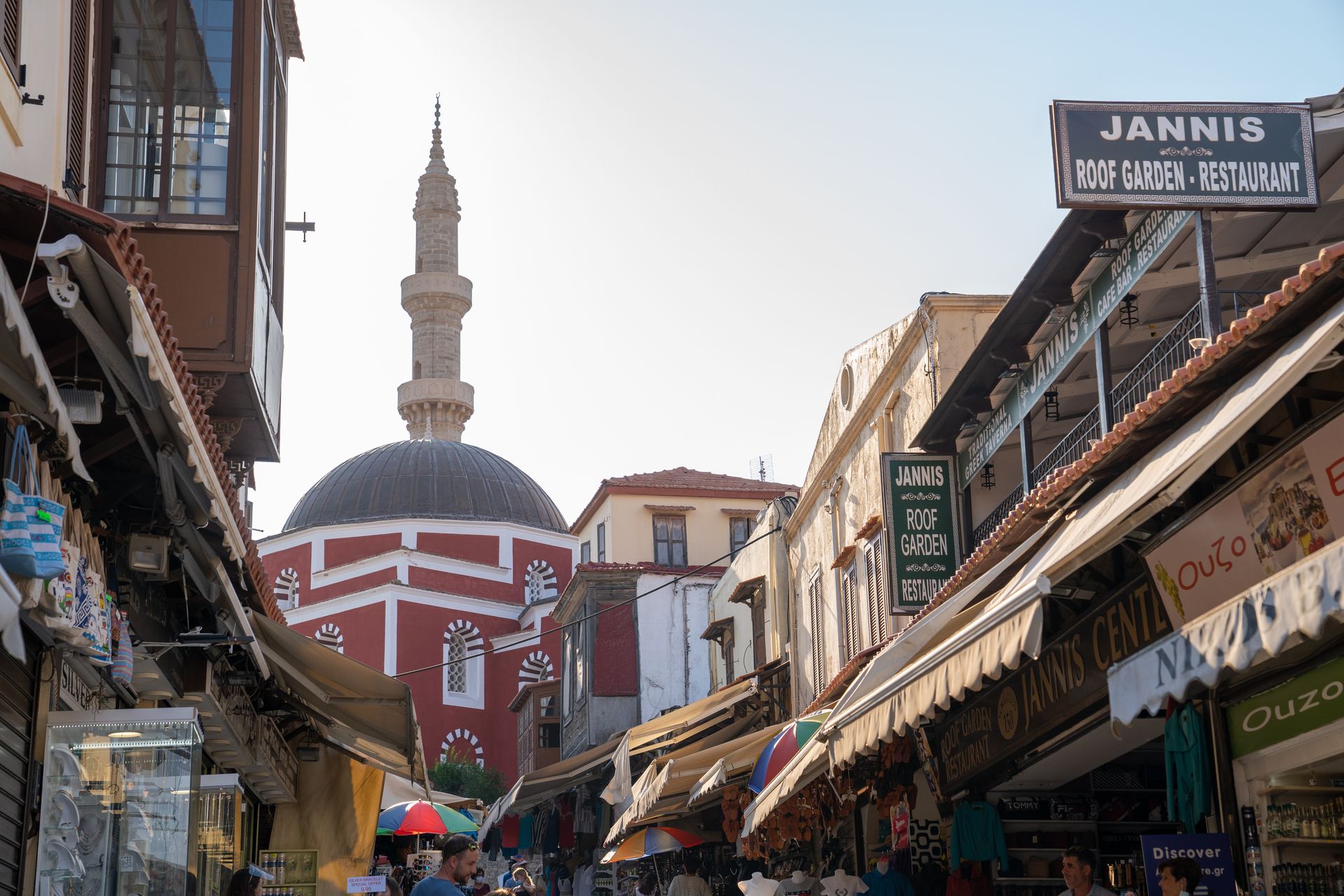
I have lived permanently in Rhodes since 1972 and have witnessed its growth and development. In the process, some of the precious past has been lost but much has also been gained. And even though Rhodes has become one of the most important tourist and conference destinations in Greece, it has not lost its charm, its humanity or the spirit inherent in so enchanting a location. The island has not surrendered any of its singular character to become an impersonal resort. The legendary hospitality of ancient Rhodes is still very much alive and kicking today as it has always been and every visitor can always count on the warmest of welcomes.
I will leave it to others to extol the virtues of the good climate, beautiful beaches and the rich mosaic of landscapes but I will take the opportunity to highlight our comparative advantage over other destinations, namely that we are a resort with a 3,000-year history.
I remember well when the Medieval Town took pride of place on UNESCO’s World Heritage List in 1988, a worthy acknowledgement of its outstanding value to civilization and the global community. Even today, with well over 1,000 sites included on the List, there are still only about 300 cities throughout the world that have achieved this distinction. We Rhodians are very proud of this recognition and many of us are involved, either as professionals or volunteers, in the ongoing efforts aimed at the protection and enhancement of our Medieval Town.
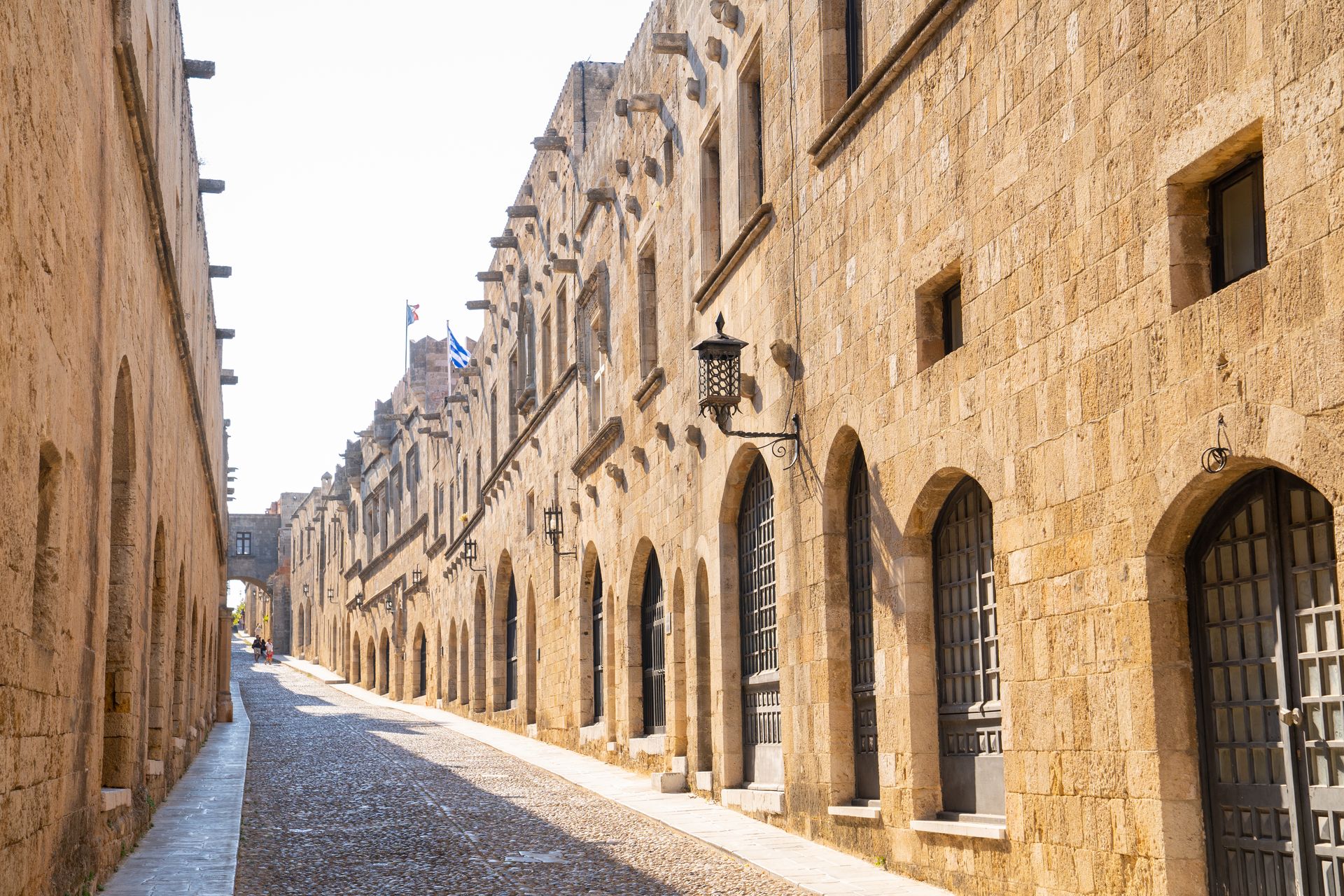
In the past 25 years, especially after its inclusion on the List, a considerable amount of restoration work has been undertaken, imparting many of the famous, long-standing buildings in the Medieval Town with a brand new lease of life, allowing them to play a full and active role in the social and cultural milieu of modern Rhodes. Thus, unique, historic sites are now available to host events, meetings, festivals and exhibitions which provide visitors, as well as the people of Rhodes, with high quality experiences. I have been closely involved for nearly 20 years in promoting this aspect of the Medieval Town.
Rhodes has a cultivated, intellectual populace where initiatives and activities are continuously in play
Rhodes has given me many opportunities to contribute to the community, helping me to discover personal abilities that had previously lain dormant. I have chaired organizing committees ranging from World Heritage Congresses to multi-sport athletic events and have travelled the globe promoting Rhodes and World Heritage. These incredible experiences I owe to Rhodes, which welcomed me with open arms in 1972 and slowly nurtured my development. I dearly love my adopted homeland and fervently believe that to travel to Rhodes is to travel into the light of history and culture.
